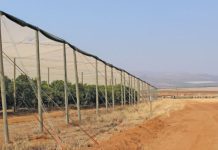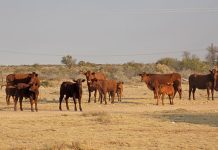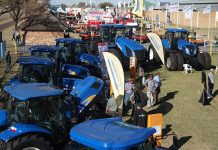Milk prices are starting to stabilise in spite of the Milk Producers’ Organisation (MPO’s) claim that there isn’t a surplus of milk in the country. National Agricultural Marketing Council’s (NAMC) latest report showed that the average increase in the price of dairy products was only 0,13% from January to April 2008.
A lwyn Kraamwinkel, the CEO of the South African Milk Processors Organisation (SAMPRO), said this is dramatically lower than the increase of the previous 12 months and it’s also lower than the increases on most other food products. He said the trend is the result of a good supply of raw, unprocessed milk, which has increased significantly over 2007 because the price of raw milk has risen by more than 50% since 2006/07, in combination with a decline in consumption.
Etienne Terre’Blanche, the managing director of the MPO, confirmed this but added that products such as milk and UHT milk are less affected by consumer pressure than higher-quality products such as cheese. He said cheese producers, in spite of consumer pressure, are still not foreseeing a crisis in the form of a cheese surplus.
He said the overall situation is the result of moving from a regulated system to free-market system which is only now starting to catch up with milk processors. “I think some milk buyers are reducing farmgate prices as they are struggling financially,” explained Terre’Blanche. “There will most probably be quite a few who will be worked out of the system over the next few years, until only the most efficient remain. We have seen this on dairy farms also, where many farmers were forced to optimise production if they wanted to remain sustainable.” However, he believes the situation will balance itself out over the next few months due to a reduction in milk product imports.
“The weakening of the rand against other major currencies has rendered it less economically viable to import milk products,” he said “international shortage of milk also makes it difficult to source milk from other countries, hence we foresee that supply and demand will become more balanced as the imported milk is worked out of the system.” recent report by the Revenue Services (SARS) confirmed that milk imports have dropped in the first four months of 2008.
Terre’Blanche also feels that the dairy industry should rather unite and find new, long-term solutions to getting rid of milk surpluses, rather than reducing farmgate prices. “New Zealand has indicated that it can hardly keep up with demand in the Chinese market,” he suggested. “Africa also poses opportunities. It has traditionally been supplied with heavily subsidised products from Europe. international shortages have made it possible for us to take this market for ourselves and it would make huge logistical sense.”
Securing such markets would, however, require the industry to work together to ensure there are sufficient volumes in the long run. SARS have indicated that dairy- product exports have increased by 55% during the first four months of 2008, albeit from a very low base. K raamwinkel pointed out that the export prices achieved in the first four months of 2008 are, according to statistic, not as favourable as in 2007 since the prices of four of the six dairy products that are exported are priced lower than they were in 2007.
“The dilemma that milk producers, milk processors and dairy-product makers will face in the following 18 months is that the basic reasons why the input costs of the industry are increasing are also the reasons why consumers are under pressure,” said Kraamwinkel. “The consumer is on the receiving end of high interest rates and the higher prices of transport, energy, food and other household inputs.” raamwinkel added that the difficult 18 months ahead can however be approached with the knowledge that economists predict that the growth rate in the economy will be higher in 2010 than in 2008 and 2009.
This is important as it will enable the consumer to spend more and that will determine the sale of dairy products. He also thinks that the 2008 retail-price increases of dairy products, which are lower than those of most other food products, are advantageous to the consumer and could, to an extent, decrease the downward pressure on sales volumes. – Glenneis Erasmus
Fuel and food costs felt hard in Northern Africa
Large areas of the Horn of Africa, including parts of Ethiopia, Somalia, Eritrea, Djibouti, Uganda and Kenya, are now in or rapidly sliding towards a humanitarian emergency. “We believe there are 14 million people now in urgent need of assistance,” said John Holmes the UN under-secretary-general for humanitarian affairs. Holmes said the recurrent failure of rains, on top of a sharp rise in fuel and food prices, is crippling local agricultural production and putting at risk the livelihood of millions of people who were already living “on the margins of survival.”– Bua news
East meets South in free-trade talks
The Common Market for Eastern and Southern Africa (COMESA), the Development Community (SADC) and the East African (EAC) will convene a tripartite meeting in October to discuss the harmonisation of trade in the region. Speaking during a regional workshop in Lusaka on Monday, COMESA secretary-general Sindiso Ngwenya said the meeting would address issues surrounding the creation of a free-trade union and a customs union. The meeting, hosted by Uganda, would also consider establishing an institutional mechanism to aid the implementation of the tripartite meeting’s decisions and programmes. – Bua News
Farmers can access tax relief
Farmer could take advantage of the small business corporation (SBC) concept’s tax relief structure, according to Frikkie Strauss, an accountant and tax consultant in Piketberg. S trauss explained that the SBC concept was introduced a few years ago through Section 12(E) of the Income Tax Act, with the purpose of stimulating small business activity through tax relief.
“Although from an economic viewpoint farming enterprises are not regarded as small businesses, nothing in the tax legislation excludes a farming enterprise from the tax benefits of SBCs,” he said, noting that to qualify for these tax advantages, a tax entity must meet the following requirements: I t must be a company or a close corporation (CC). one-man business, partnerships or trusts will not qualify.
Shareholders or members must always be natural persons and not legal entities such as companies, CCs or trusts. he shareholders or members may at no stage during the financial year be shareholders or members of another company or CC. he turnover of the company or CC may not exceed a prescribed amount • • • • announced during the annual budget speech and at present set at R14 million. trauss explained that the tax advantages of SBCs cover four main areas: favourable tax rates; accelerated deductions for capital expenses; a special deduction for capital gains tax and reduced compliance requirements.
“Any farmers who can arrange their affairs in such a way that the requirements of 12(are met, can enjoy the advantages,” added Strauss. “SBCs can be extremely useful in a diversified farming concern. Each aspect of the business could be transferred to an SBC in which a family member could received the interest. In this way, large tax savings could be effected.
Spouses, grandfathers, grandmothers and even minor children could qualify. “The fact that wear and tear on equipment for SBCs is the same as for farming, makes it especially attractive to farmers,” explained Strauss. “Farmers who process agricultural products also receive the accelerated 100% write-off on equipment used in manufacturing.” – Staff reporter For more information contact Frikkie Strauss on (022) 913 2391 or e-mail [email protected].
Input relief as Foskor drops import parity
Having come under severe criticism for allegedly elevating the price of phosphorous by charging import parity to local customers, such as Omnia and Sasol Nitro, phosphoric acid producer Foskor announced it will now no longer charge import parity to any of its local customers. “Whether this will be felt all the way down the value chain to the end user remains to be seen,” said Alfred Pitse Foskor CEO. “But this is one way Foskor aims to act responsibly.”
Dr Gert van der Linde, the director of the Fertiliser Society of South Africa, recently reported that Foskor had charged its local customers between 50% and 60% import parity and that phosphorous makes up 13% of the nitrogen, potassium and phosphorus (NPK) price. SA imports all its potassium, and 50% of its nitrogen requirements with the balance made up mainly by Sasol. “If Foskor does drop the import parity that will amount to a saving of 50% of 13%, which will be about 6,5% of the current NPK price,” said Van der Linde.
“So, while it’s not a huge saving, it will help a little.” T his will also be good news for livestock farmers who have felt the pinch of rising lick ingredient prices. Maclear sheep, cattle and crop farmer Ron Moore, who is also the manager of the Farmers’ Group, said both P12 stock lick and fertiliser prices had skyrocketed in recent months. “In March we were paying R152 for 50kg of P12 stock lick, while we’re currently paying R360/50kg bag,” said Moore.
“And that’s at a discount of about 30% on the actual price because we buy as a group. I’ve also stopped using supers for my pasture because the price has increased from R2 658/t in November last year to its current price of R6 585/t.” M oore made the point that while winter offered some respite from fertilising lucerne pasture, he couldn’t stop supplying his sheep and cattle with licks. “A P6 blend, made up of 50kg of P12 stock lick and 50kg of salt, will last nearly six days with a flock of 100 sheep,” said Moore.
“That’s at a minimum cost of R382 for the lick and salt.” KK Animal Nutrition nutritionist Alina Taute said that while phosphorous was present in veld, livestock still needed supplements because South Africa’s veld is phosphorous-deficient. “Phosphorous is vital for fertility as well as all energy requirements, such as during the mating season,” said Taute. – David Steynberg
Private power could save SA
With the help of privately owned power stations South Africa’s electricity woes could recede within two years. This was the conclusion of a round table discussion by 50 senior representatives from government, business and trade unions who met to find answers to many of the questions posed by the electricity crisis.
Hosted by the Centre for Development and Enterprise (CDE) the discussion forum heard warnings that the blackouts and load-shedding of this year would be nothing compared to what’s to come. “Without private sector participation and electricity generation we will experience blackouts for hours daily by 2010, seriously putting a damper of any of the country’s targets and development goals,” said Ann Bernstein, CDE founding director.
The added that the participants directly blame government for avoiding the facts around electricity generation for a decade. “It also became abundantly clear that the Eskom board needs a radical shake-up in order to provide the company with the leadership it requires. Failures on such a scale must lead to dismissals,” continued Bernstein. – Annelie Coleman








